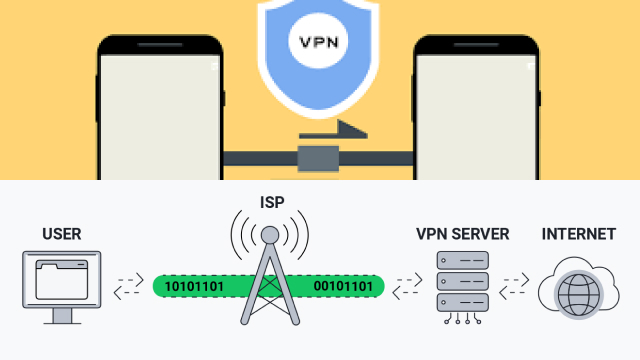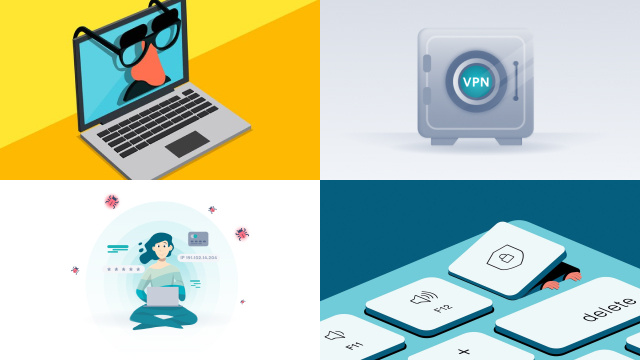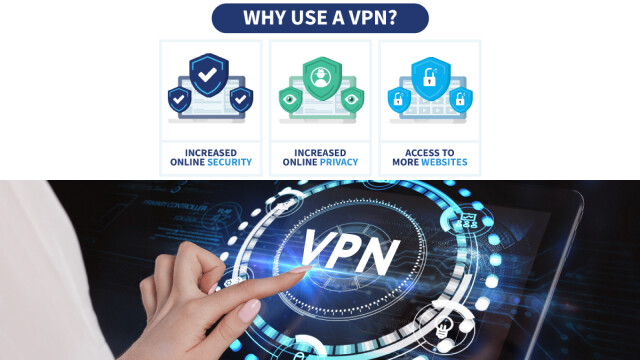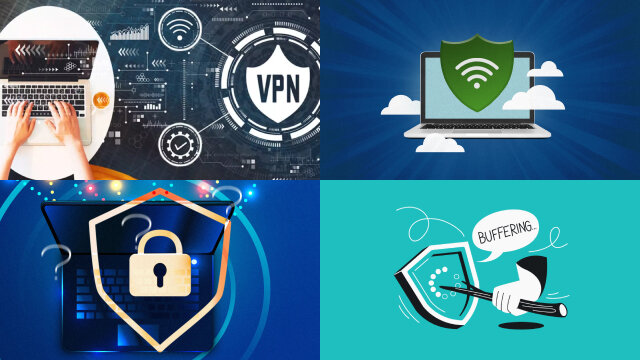Defining VPN: A Comprehensive Guide
A VPN, or Virtual Private Network, is a type of technology that provides users with a secure and private connection to the internet. Essentially, a VPN creates a tunnel between the user’s device and the internet, allowing them to send and receive data in an encrypted and anonymous manner.
One of the key benefits of using a VPN is increased security. With a VPN, users can prevent third parties, such as hackers or government agencies, from intercepting their online activity and stealing sensitive information. Additionally, a VPN can help users bypass internet censorship and geo-restrictions, allowing them to access websites and services that may be blocked in their country or region.
Another important feature of VPNs is their ability to mask a user’s IP address. This means that the user’s online activity cannot be traced back to their physical location, providing a greater level of privacy and anonymity. VPNs also allow users to choose which server they connect to, which can provide additional benefits such as faster internet speeds or access to specific content.
Overall, a VPN is a powerful tool for anyone looking to protect their online privacy and security. By encrypting data and providing an anonymous connection to the internet, a VPN offers users peace of mind when using the internet.
Understanding VPN: A Complete Overview
A VPN, or Virtual Private Network, is a tool that allows users to create a secure and private connection to the internet. This connection is established through a VPN server, which acts as a gateway between the user’s device and the internet. When a user connects to a VPN server, all of their internet traffic is encrypted and routed through the server, which provides an additional layer of security and privacy.
One of the key benefits of using a VPN is that it allows users to access the internet as if they were in a different location. By connecting to a server in another country, users can bypass geo-restrictions and access content that may be blocked in their region. This can be particularly useful for travelers or individuals living in countries with strict internet censorship.
Another benefit of VPNs is increased privacy. By masking a user’s IP address and encrypting their internet traffic, VPNs prevent third parties from tracking their online activity and stealing sensitive information. This can be especially important for individuals who use public Wi-Fi networks or regularly share sensitive data online.
Overall, VPNs are a powerful tool for anyone looking to protect their online privacy and security. By providing a secure and private connection to the internet, VPNs offer users a greater level of control over their online activity.
The Importance of VPN in Today’s Digital World
In today’s digital world, where privacy concerns and cyber threats are becoming increasingly prevalent, VPNs have become a crucial tool for anyone looking to protect their online activity. With the rise of data breaches, hacking, and government surveillance, individuals are becoming more aware of the importance of online privacy and security.
VPNs offer users a secure and private connection to the internet by encrypting their internet traffic and masking their IP address. This means that third parties, such as hackers or government agencies, cannot intercept their online activity or steal sensitive information. Additionally, VPNs allow users to bypass internet censorship and geo-restrictions, providing greater freedom and access to online content.
The importance of VPNs is particularly relevant for individuals who use public Wi-Fi networks, which are often unsecured and can be easily compromised. By using a VPN, users can protect their online activity from prying eyes and prevent their personal data from being stolen.
Overall, VPNs have become a critical tool for anyone looking to protect their online privacy and security in today’s digital world. By providing a secure and private connection to the internet, VPNs offer users a greater level of control over their online activity and help to safeguard sensitive information from cyber threats.
How VPN Works: Simplifying the Complexities
VPN, or Virtual Private Network, is a tool that creates a secure and private connection to the internet. It does this by creating a secure “tunnel” between the user’s device and the internet, which encrypts all of the data that passes through it. This means that anyone trying to intercept the user’s online activity will be unable to read the encrypted data.
When a user connects to a VPN, their internet traffic is routed through a VPN server, which acts as a gateway between the user’s device and the internet. The VPN server assigns the user a new IP address, which masks their actual location and makes it difficult for anyone to track their online activity.
VPNs work by using a combination of encryption and routing to create a secure and private connection to the internet. By encrypting all of the user’s internet traffic and routing it through a VPN server, VPNs provide a powerful tool for anyone looking to protect their online privacy and security.
Overall, while the technology behind VPNs can be complex, their use is straightforward and can provide significant benefits to users looking to safeguard their online activity.
Benefits of VPN: Security, Anonymity, and More
VPNs, or Virtual Private Networks, have become increasingly popular in recent years due to their ability to provide a range of benefits to users. Some of the key benefits of using a VPN include enhanced security, anonymity, and the ability to access blocked content.
One of the main benefits of using a VPN is increased security. By encrypting a user’s internet traffic, VPNs prevent third parties from intercepting their online activity or stealing sensitive information. This can be particularly important for individuals who use public Wi-Fi networks or share sensitive information online.
Another benefit of using a VPN is increased anonymity. By masking a user’s IP address and routing their internet traffic through a VPN server, VPNs provide a layer of anonymity that can be useful for individuals looking to protect their online privacy.
Finally, VPNs can allow users to access blocked content and bypass geo-restrictions. This can be particularly useful for travelers or individuals living in countries with strict internet censorship, as it allows them to access online content that may be blocked in their region.
Overall, VPNs provide a range of benefits that can help users protect their online privacy and security, as well as providing greater freedom and access to online content.
Common VPN Use Cases: From Streaming to Gaming
VPNs, or Virtual Private Networks, have become increasingly popular in recent years due to their ability to provide a range of benefits to users. Some of the most common use cases for VPNs include streaming, gaming, and online shopping.
One of the most popular use cases for VPNs is streaming. By using a VPN, users can access content that may be restricted in their region or country. This can include popular streaming services such as Netflix, Hulu, and Amazon Prime Video. Additionally, VPNs can provide increased security when streaming, as they encrypt a user’s internet traffic and protect against third-party interception.
Another common use case for VPNs is gaming. By using a VPN, gamers can reduce lag and improve their gaming experience by connecting to servers that are closer to their physical location. Additionally, VPNs can provide increased security when gaming, as they protect against DDoS attacks and other forms of online harassment.
Finally, VPNs can be useful for online shopping. By using a VPN, users can access online shopping sites that may be restricted in their region, as well as protecting their sensitive information when making online purchases.
Overall, VPNs provide a range of use cases that can help users protect their online privacy and security, as well as providing greater freedom and access to online content.
Choosing the Right VPN: Tips and Considerations
With so many VPN providers available on the market, choosing the right one can be a daunting task. When looking for a VPN, there are a number of factors to consider to ensure you get the best service for your needs.
One of the most important considerations when choosing a VPN is security. Look for a provider that uses strong encryption and has a strict no-logs policy to protect your online activity and sensitive information.
Another important consideration is the provider’s server network. Look for a provider with a wide range of server locations, especially if you plan to use the VPN to access geo-restricted content or bypass internet censorship.
Price is also an important factor to consider. While there are free VPNs available, these often come with limitations such as data caps or slower speeds. Consider paying for a reputable VPN provider that offers a range of features and a reliable service.
Finally, consider the provider’s customer support. Look for a provider with 24/7 customer support and a helpful knowledge base to ensure you can get assistance when you need it.
Overall, choosing the right VPN requires careful consideration of a range of factors to ensure you get the best service for your needs.
Setting up VPN: A Step-by-Step Guide
Setting up a VPN can seem daunting at first, but it’s actually a straightforward process that can be completed in just a few simple steps.
First, choose a VPN provider that meets your needs and sign up for a subscription. Once you’ve signed up, download and install the provider’s VPN software onto your device.
Next, open the VPN software and log in using your account details. From here, select a server location from the provider’s list of available options. If you’re looking to access geo-restricted content, make sure to select a server location in the relevant country.
Once you’ve selected a server location, simply click “Connect” to establish a secure VPN connection. You’ll then be able to browse the internet as normal, but with the added security and privacy benefits of using a VPN.
If you encounter any issues during the setup process, most VPN providers offer helpful setup guides and 24/7 customer support to help you get up and running.
Overall, setting up a VPN is a simple process that can provide a range of benefits for users looking to enhance their online security and privacy.



